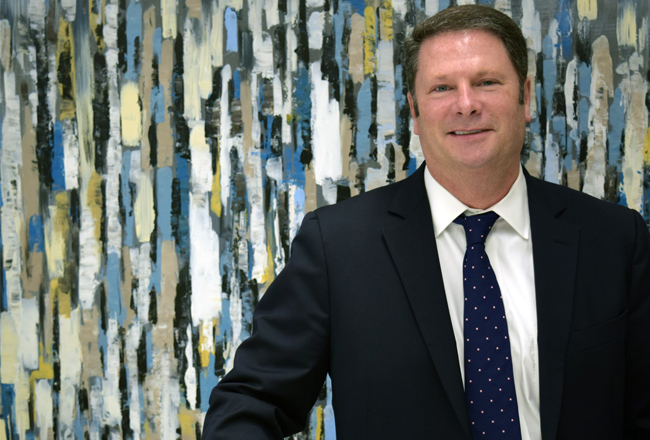The home and the world: Kevin Brady’s double focus
For Kevin Brady, keeping an eye on the comings and goings of his local business community and the tumult of the world economic picture occupies two professional tracks. Since July, he has served as the chairman of the board of the Fairfield Chamber of Commerce. And next month he will mark his first anniversary as a wealth adviser at Westport-headquartered MJP Wealth Advisors.
And in both pursuits, he is in constant conversation with individuals and business professionals who seek his advice on what is happening around them ”” whether it involves Black Rock Turnpike or Brexit ”” and what could be done to ensure the future is without unpleasant surprises.

A Bronx native and Fairfield resident, Brady received a dual Bachelor of Science degree in economics and finance from Boston College and an MBA from the University of Connecticut. Before coming to MJP Wealth Advisors, he was a branch manager and client adviser for the Denver-headquartered and nationally focused Mercer Advisors, and was previously vice president with Spruce Hill Capital, a boutique firm based in Guilford. In his current work, Brady believes he is experiencing the best of both worlds.
“I feel a high level of client centricity in making sure the clients have a great experience here,” he said. “This was a really good fit for me in terms of my values in helping people navigate their financial lives.”
Brady”™s client inquiries have a surplus of questions on where the economy is heading. With grumbling from some corners predicting a recession and continued drama in U.S.-China trade relations, Brady noted that many people are apprehensive.
“People are concerned that things have been so good for so long that they”™re wondering when the bottom is going to fall out,” he said. “There is a lot that we hear that is very disruptive ”” whether it”™s what”™s going on in the Middle East or Brexit ”” but there”™s always some type of geopolitical tension going on.”
Brady acknowledged that despite the percolating agita on what could transpire, “nobody wants to leave the party early. That”™s one of the challenges ”” understanding where we think the markets are going. The economies are starting to cool off, both abroad and here, and we don”™t think the sky is falling, but it is a really good time to revisit the risk conversation with your client. If they”™ve been on the cutting edge of risk in terms of their tolerance, maybe now is a good time to scale back.”
In his role as the Fairfield Chamber of Commerce board chairman, Brady is fielding questions and ideas from members on resources for growing their businesses. He is examining opportunities to bring in guest experts in various subjects that could help the members with their sales and marketing efforts.
“We have a lot of people that tend to have smaller operations,” he stated. “They don”™t have the resources and bandwidth to hire people to do extraneous things. The chamber can plug in a bit and get out to the community and network in order to help people get the word out.”
Brady is also occupied in helping to define the town”™s role within the Connecticut economy. In June, the chamber was in the statewide spotlight when it snagged Gov. Ned Lamont to address economic issues, including the ongoing controversy regarding tolls. For Brady, the chamber”™s activities take up a healthy slice of his schedule.
“I probably average five hours a week between emails and meeting with people,” he said. “That”™s on the weeks when we don”™t have our scheduled meetings. The second Thursday of every month, we have our executive committee board meeting and have our regular board meeting the following week. On those weeks, I probably commit to eight or nine hours.”
Brady is eager to bring a new wave of corporate activity to the state.
“We are not competing internally here in Connecticut. We are competing against Boston and New York,” he said. “People want to live near those places because of the experiences and jobs. If we can do something transportation-wise on the corridor between New York and Boston, it could make Connecticut not only a much more viable place to live, but one where industries would want to come back to.”